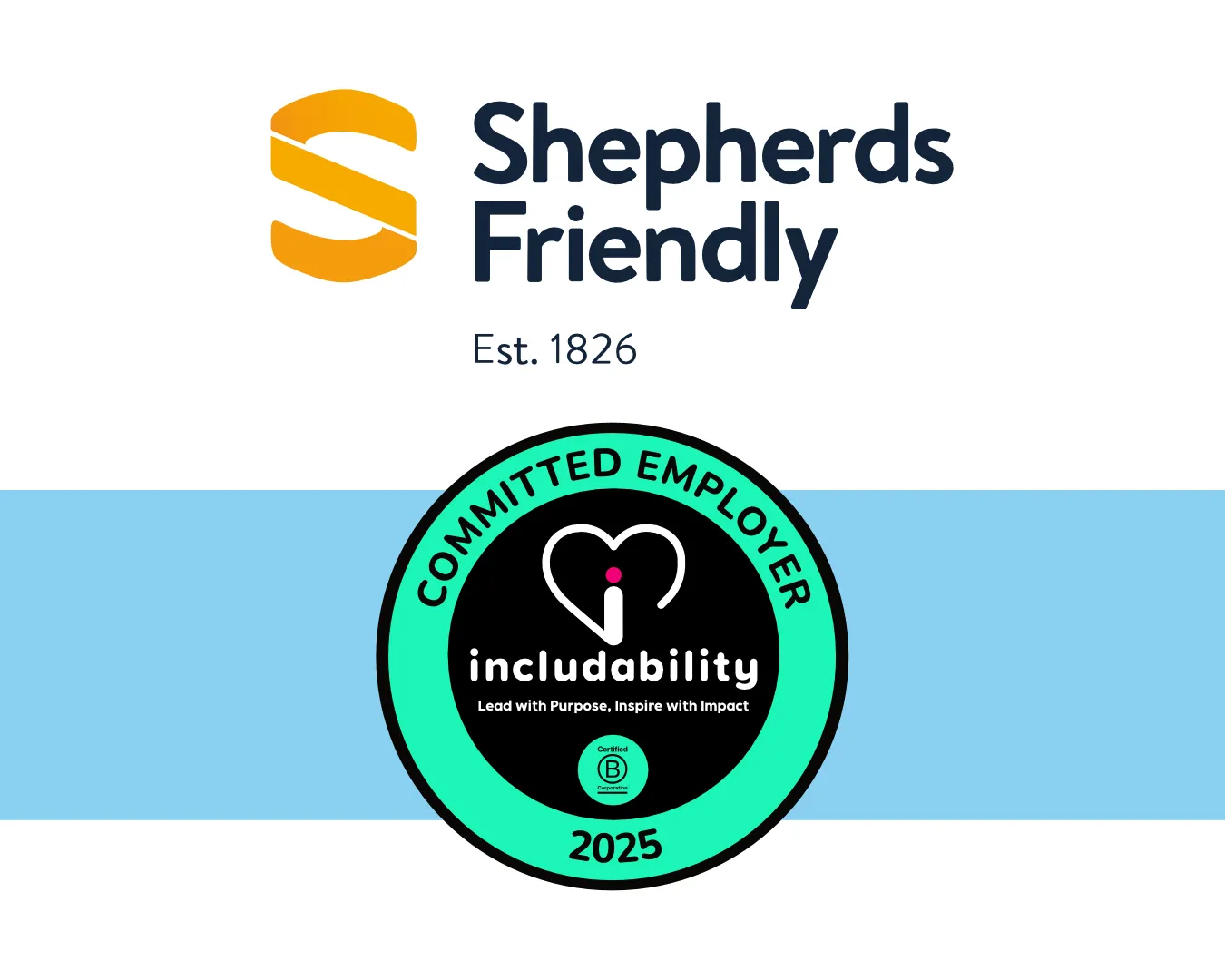2024 Employment Law Changes: Labour's Significant Reforms to Employment Rights
In 2024, there have been several legislative changes to workplace law. April saw changes to flexible working from the previous government. And in October, changes to sexual harassment reporting, action and penalties came into effect under the new Labour government. This blog explains the recent changes with the help of our wonderful Ambassadors and signposts to further details for business looking to get to grips with the changes.

An Includability Quick Guide to Employment Law Changes in 2024 and Beyond

In 2024, there have been several legislative changes to workplace law. April saw changes to flexible working from the previous government. And in October, changes to sexual harassment reporting, action and penalties came into effect under the new Labour government.
This blog explains the recent changes with the help of our wonderful Ambassadors and signposts to further details for business looking to get to grips with the changes.
The Labour Government has also set out an ambitious agenda for employment law reform, promising the "biggest upgrade to workers' rights in a generation." This blog breaks down key policies from the proposed; Employment Rights Bill and Equality (Race and Disability) Bill, detailing the potential impact on businesses and workers alike.
Flexible Working as the Default
Changes to flexible working as the default from day one came into effect in April 2024 under the Conservative Government, with employers required to accommodate these requests unless it’s unreasonable to do so. With businesses grappling with changes this year, we ask: How has the change impacted business so far?
Impact of Flexible Working Requests as the default on Workplace Culture
Our Ambassador, Sara Matthews, notes that the April 2024, changes allowing day-one flexible working rights for all employees present unique challenges and opportunities for HR teams and managers. Employers must be prepared to manage requests efficiently and openly while also adapting traditional work models to accommodate new flexibility.
By sharing inclusive practices during recruitment, companies can better attract talent and leverage flexible work models to increase productivity and engagement. This shift requires a balance between operational adaptability and fostering an environment of trust and inclusivity.
“The new flexible working rights which came into effect in April 2024 are available to all employees and effective from day-one of employment. This presents some new challenges to managing the workplace for HR professionals and line managers - both in terms of approaching the requests in the right way through greater engagement and the employer having to make decisions more quickly.
“It is important for organisations to share their inclusive practices at the recruitment stage, and this can be a real benefit when attracting talent. It also requires employers to think about how to adjust traditional work models and how they can operationally manage more adaptable work schedules. Working flexibly can create better productivity and engagement, and businesses should consider how they harness these benefits when addressing the new legislation.”
Sara Matthews, Director, ODISEE Ltd
The introduction of flexible working as a day-one right is seen as a natural progression from the changes experienced during the COVID-19 pandemic. However, Gunraj Arora, highlights a critical challenge.
"Flexible working requests is not a huge change to the current business practice and culture given employees were required to work flexibly during the COVID19 pandemic. Since then, there has been a general shift back to having obligations on people working in the office. If the workplace culture demands in-office working, the law change will not make much impact as employees are likely to feel scared to request more flexible working arrangements."
Gunraj Arora, Founder, GA Legal
This sentiment underscores the importance of aligning workplace culture with legislative intent. While many organisations have adapted to remote or hybrid models, some remain resistant, creating a disconnect between employee expectations and employer preferences.
New Duty to Prevent Sexual Harassment in the Workplace
A significant shift in employment law will take effect on October 26, 2024, requiring UK employers to proactively prevent sexual harassment under the Worker Protection (Amendment of Equality Act 2010) Act. This landmark legislation mandates that businesses adopt a zero-tolerance approach by identifying risks, improving policies, and offering employee training to create a safe workplace.
Conducting sexual harassment audits is vital, focusing on areas such as workplace culture, power imbalances, and ineffective reporting systems. Key actions include regular risk assessments, policy updates, and accessible reporting mechanisms.
"The duty to prevent sexual harassment will compel employers to provide clearer definitions of unacceptable behaviour, strengthen training, and implement greater protections. Failure to comply could result in higher compensation penalties for businesses."
Gunraj Arora, Founder, GA Legal
By embedding a culture of prevention and accountability, organisations can reduce risks, enhance employee safety, and comply with the law’s stringent new standards. For a more detailed breakdown and insights, explore our Verification Partner, The HR Agency, blog: New duty to prevent sexual harassment. Is your organisation ready?
What to Expect from Labour’s Employment Reform Proposals
Labour’s New Deal for Working People proposals emphasises fair pay, better work conditions, and enhanced protections for workers. Here’s an overview of what businesses should be aware of considering the recent legislative proposals that could affect businesses in the coming parliament.
Ban on Zero-Hour Contracts
Labour plans to eliminate exploitative zero-hour contracts, requiring employers to provide contracts reflecting the hours that people regularly work. This aims to end "one-sided flexibility," where workers have little control over their working hours.
Day-One Rights for Workers
Under the new Employment Rights Bill, day-one rights for parental leave, sick pay, and unfair dismissal protection will be introduced. Employers will still be able to use probationary periods, but all workers will be entitled to these protections from their first day of employment.
Reforming Dismiss and Rehire Practices
The government is set to legislate to overhaul current practices surrounding "fire and rehire" or "dismiss and replace," tightening the law and replacing the Conservative Government’s statutory code. This change will prevent employers from forcing employees into less favourable terms.
Sick Pay and Dismissal Protections
Labour say they will remove the lower earnings threshold for Statutory Sick Pay (SSP), extending SSP to 1.5 million more workers. Additionally, the three-day waiting period for SSP will be scrapped, providing immediate support for sick workers. Furthermore, women will receive enhanced protections after maternity leave, with a six-month period during which they cannot be dismissed except under specific conditions.
Trade Union Support and Rights
Labour aims to strengthen the role of trade unions by repealing restrictive legislation on union activity. The Strikes (Minimum Service Levels) Act will be removed, allowing unions more freedom in organising industrial action.
The Equality (Race and Disability) Bill: Pay Gap Reporting
Another significant piece of legislation is the Equality (Race and Disability) Bill, which introduces mandatory pay gap reporting for ethnicity and disability. This aims to ensure transparency in pay practices and root out discrimination in the workplace, similar to the existing gender pay gap reporting.
The potential impact of mandatory Ethnicity and Disability Pay Gap Reporting on business transparency
The recent mandate for ethnicity and disability pay gap reporting aims to increase transparency, ensuring pay equity is central to business strategies. Sara Matthews emphasises that this reporting will allow organisations to develop focused action plans, not only addressing pay gaps but fostering a fairer workplace culture.
“The new reporting requirements should facilitate the identification of ethnicity and disability pay gaps and move this up on business and government agendas. Using the data will enable businesses to create action plans for change and inclusion and mitigate against equal pay claims. This would be an effective way to take positive steps for a better and fairer working environment for all employees.”
Sara Matthews, Director, ODISEE Ltd
How Includability Can Help Your Business Stay Compliant
As these laws bring significant changes, businesses need to stay ahead by reviewing their policies and practices. At Includability, we offer comprehensive support to ensure compliance with the latest employment laws. From diversity and inclusion initiatives to leadership and governance strategies, we help you build an equitable workplace that thrives under new regulations.
Contact us today to learn more about how our services can prepare your business for the future of work.
https://www.weareincludability.co.uk/membership/signup
This blog is a quick overview of Labour’s upcoming employment law changes. For a more detailed breakdown and insights, explore our Verification Partner, The HR Agency, blog: New duty to prevent sexual harassment. Is your organisation ready?
https://thehragency.co.uk/sense/new-duty-to-prevent-sexual-harassment
Related resources & events
Sign up for our newsletters
We have an employer and Job seeker newsletter giving you all the latest information in one easy and digestible email. Sign up today for news and job advice straight to your inbox.










